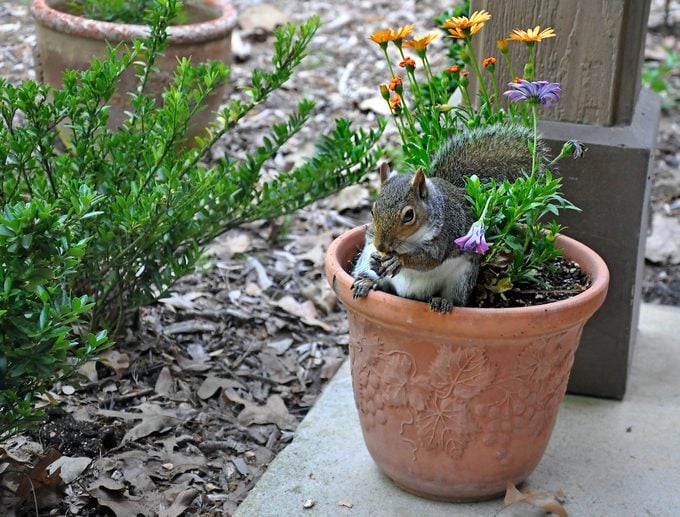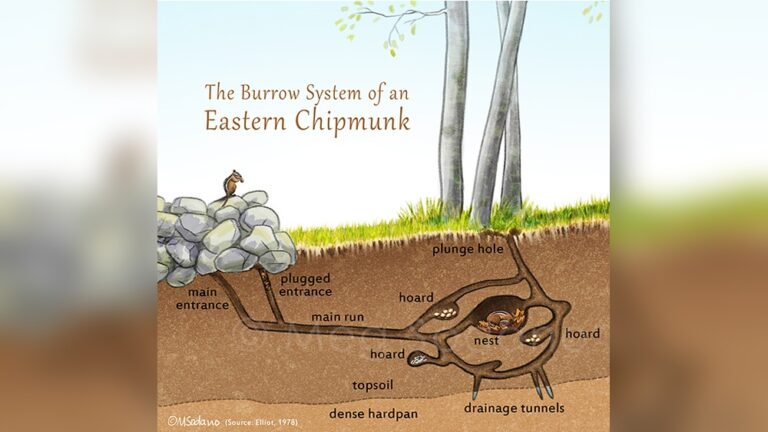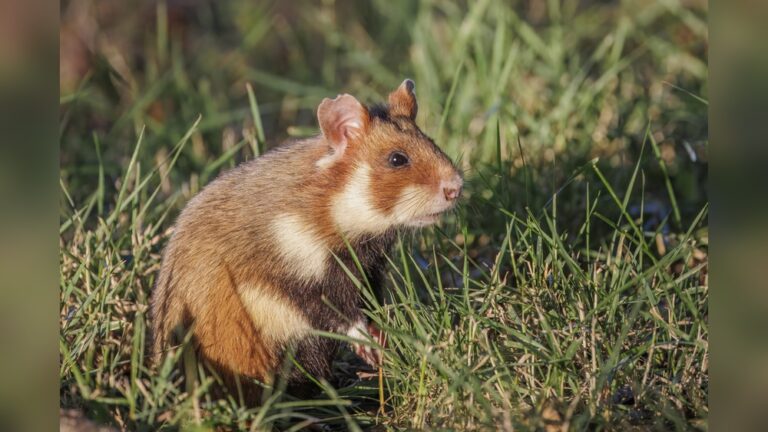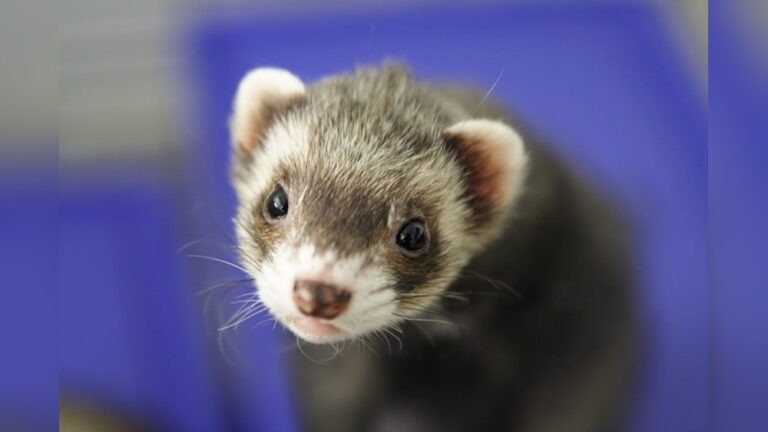Keep Chipmunks Out Of Flower Pots: Easy Tips That Work Fast
Are you tired of finding your beautiful flower pots dug up and ruined by chipmunks? You’re not alone.
These tiny creatures might look cute, but they can cause big damage to your garden. Imagine planting vibrant flowers, only to watch them disappear or get destroyed overnight. It’s frustrating, right? But don’t worry—there are simple, effective ways you can keep chipmunks out of your flower pots and protect your garden’s beauty.
Keep reading, and you’ll discover easy tips that really work to keep those pesky critters at bay.
Why Chipmunks Target Flower Pots
Chipmunks often dig up flower pots. They do this for several reasons. Understanding why they target these pots helps protect your plants. Flower pots offer a small, safe space with food and shelter. This makes them attractive spots for chipmunks to explore and stay.
Attraction To Soil And Plants
Chipmunks are drawn to loose soil in flower pots. It is easy for them to dig and search for insects or roots. Some plants have seeds or bulbs that chipmunks like to eat. The soil also stays warm longer than ground soil. This warmth makes flower pots a cozy place for chipmunks.
Seeking Food And Shelter
Flower pots provide a quick source of food for chipmunks. They find seeds, small insects, and plant parts to eat. Pots offer protection from predators and bad weather. The small space acts as a temporary shelter. This makes flower pots a perfect resting spot for chipmunks.

Credit: www.youtube.com
Signs Of Chipmunk Activity
Noticing chipmunks near your flower pots can be frustrating. These small animals often leave clear signs of their activity. Recognizing these signs early helps protect your plants and pots from damage. Watch closely for clues that chipmunks have been around.
Visible Damage To Pots
Chipmunks chew on flower pots to create nests or find food. You might see small holes or cracks in the pots. Soil may be dug up or scattered around the area. Plants can look disturbed or uprooted. Such damage shows chipmunks have been active nearby.
Tracks And Droppings
Chipmunk tracks often appear in soft soil or mud near pots. Their small paw prints have four toes in front and five in back. Droppings are small, dark, and pellet-shaped. Finding these near your flower pots confirms chipmunks are visiting your garden.
Physical Barriers To Protect Pots
Physical barriers offer a simple way to keep chipmunks out of flower pots. These barriers stop chipmunks from digging or chewing on the soil and plants. They protect your pots without using harmful chemicals or traps. You can use materials that are easy to find and install.
Using Mesh And Netting
Mesh and netting create a strong fence around your pots. Choose wire mesh with small holes to block chipmunks. Cut the mesh to fit the pot’s size. Wrap it around the pot or cover the soil surface. Secure the edges tightly to stop chipmunks from slipping inside. This method lets water and sunlight reach the plants. It also keeps the soil in place and safe from digging.
Placing Decorative Stones
Decorative stones act as a natural barrier on top of the soil. Use small to medium-sized stones to cover the pot surface. The stones make it hard for chipmunks to dig. They also add a nice look to your flower pots. Stones keep moisture in the soil and reduce weed growth. Change the stones if chipmunks manage to move them. This method works well with other barriers for extra protection.
Natural Repellents For Chipmunks
Keeping chipmunks away from flower pots can be tough. Natural repellents offer a safe way to protect your plants. These methods use smells and plants that chipmunks dislike. They help keep your garden peaceful without chemicals.
Essential Oils And Scents
Chipmunks dislike strong smells. Essential oils like peppermint, eucalyptus, and citronella work well. Soak cotton balls in oil and place them near pots. The scent drives chipmunks away.
Renew the oils often. This keeps the smell strong and effective. Avoid spraying oils directly on plants. Some oils may harm sensitive flowers.
Planting Repellent Herbs
Certain herbs repel chipmunks naturally. Planting garlic, chives, or lavender around flower pots helps. These herbs have strong scents chipmunks avoid.
Herbs add beauty and keep pests away. They grow easily and need little care. Place them close to your flower pots for best results.
Safe Trapping And Relocation
Keeping chipmunks out of flower pots can be tricky. Safe trapping and relocation help protect your plants without harming the animals. This method moves chipmunks away gently and responsibly.
Choosing The Right Trap
Pick a humane trap made of wire or plastic. It should be big enough for chipmunks to enter comfortably. Avoid traps that can hurt or stress the animal. Use bait like sunflower seeds or peanut butter to attract chipmunks. Place the trap near the flower pots for better chances.
Best Practices For Relocation
Relocate chipmunks at least one mile from your home. Choose a natural area with food and shelter. Handle traps carefully to avoid stress or injury. Release the chipmunk gently and quickly. Check local laws about trapping and relocating wildlife before you start.

Credit: ducksnarow.com
Maintaining A Chipmunk-free Garden
Maintaining a chipmunk-free garden helps protect your plants and flowers. Chipmunks dig in flower pots and eat seeds, causing damage. Keeping them away requires regular care and smart habits. A clean garden and fewer food sources make your space less inviting for chipmunks.
Regular Cleaning And Inspection
Check your garden often for signs of chipmunk activity. Remove fallen seeds, nuts, and plant debris quickly. Clear away any holes or burrows near flower pots. Keep pots tidy and soil loose to spot new digging. Clean areas reduce hiding spots and discourage chipmunks.
Limiting Food Sources
Chipmunks visit gardens searching for food. Avoid leaving birdseed or pet food outside overnight. Pick up fallen fruits and vegetables from the ground. Use plants that chipmunks dislike near pots as a natural barrier. Less food means chipmunks are less likely to stay around.
Alternative Solutions And Tips
Keeping chipmunks away from flower pots can be tricky. Using safe and gentle methods helps protect your plants and keeps chipmunks unharmed. Below are some simple ideas to try at home.
Using Motion-activated Devices
Motion-activated devices scare chipmunks without harming them. These devices release water or sound when movement is detected. Chipmunks quickly learn to avoid the area. Place these devices near your flower pots for best results. They work day and night and need little maintenance.
Creating Distractions Away From Pots
Chipmunks love easy food sources. Offer food away from your flower pots to distract them. Place bird feeders or nuts in a different garden area. This keeps chipmunks busy and away from your plants. Changing the location often helps prevent chipmunks from returning to the pots.

Credit: www.birdsandblooms.com
How Smart Pets Lover Can Help You with Keep Chipmunks Out Of Flower Pots
Turning Chipmunk Challenges into Learning Moments
Understanding why chipmunks target flower pots and recognizing signs of their activity opens the door to some practical learning opportunities for any garden enthusiast. When you explore physical barriers or natural repellents, you’re not just protecting your plants—you’re also tuning into the delicate balance between wildlife and our living spaces.
At Smart Pets Lover, we believe every interaction with animals, whether furry or feathered, is a chance to grow in empathy and knowledge. Observing chipmunk behavior encourages patience and creativity in problem-solving, valuable skills for any pet parent or garden caretaker. Plus, safely trapping and relocating chipmunks teaches respect for wildlife and responsible stewardship of your outdoor environment.
- Track chipmunk activity to better understand their habits
- Experiment with gentle deterrents to find what works best
- Maintain a chipmunk-free garden while fostering coexistence
If you’re curious to learn more or need guidance on protecting your garden with kindness, feel free to reach out to our community at Smart Pets Lover. After all, every wag, purr, and chirp tells a story—and so does every tiny pawprint left in your flower pots.
Frequently Asked Questions
How Can I Prevent Chipmunks From Damaging Flower Pots?
Use physical barriers like wire mesh or garden netting around pots. Applying natural repellents or planting chipmunk-deterring plants also helps. Regularly check and maintain these measures for effectiveness.
What Natural Repellents Keep Chipmunks Away From Pots?
Castor oil spray, garlic, and hot pepper solutions repel chipmunks. These natural repellents are safe for plants and pets. Reapply after rain or watering for continued protection.
Are There Safe Ways To Deter Chipmunks Without Harming Them?
Yes, humane methods include using motion-activated sprinklers or ultrasonic devices. Physical barriers and planting deterrent herbs work well too. Avoid poisons or traps to protect wildlife and pets.
Why Do Chipmunks Target Flower Pots Specifically?
Flower pots often contain seeds and tender plants that attract chipmunks. They provide easy food and shelter sources. Understanding this helps in choosing the right prevention methods.
Conclusion
Keeping chipmunks out of flower pots protects your plants and garden beauty. Use barriers like mesh or wire to block their entry. Strong scents, such as garlic or pepper, can discourage these little invaders. Regularly check pots for holes or gaps to seal quickly.
Stay patient and consistent with your efforts for best results. Enjoy a chipmunk-free garden where your flowers can grow well. Simple steps make a big difference in keeping pests away. Your garden deserves care and protection every day.





